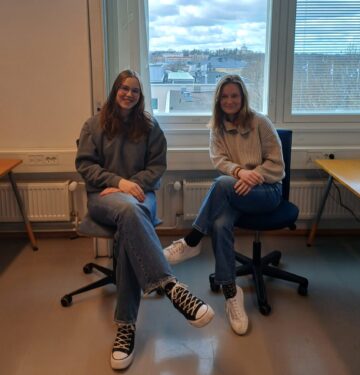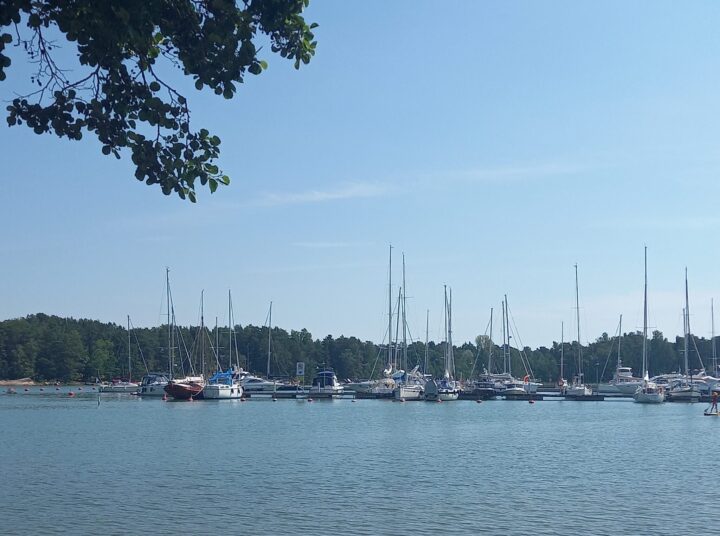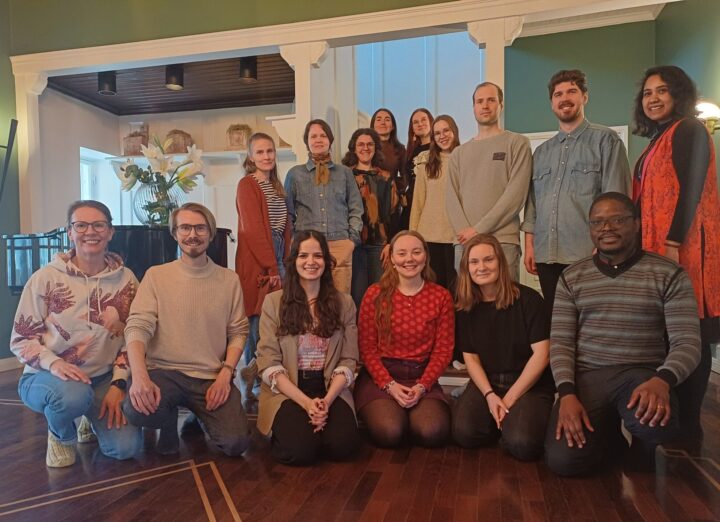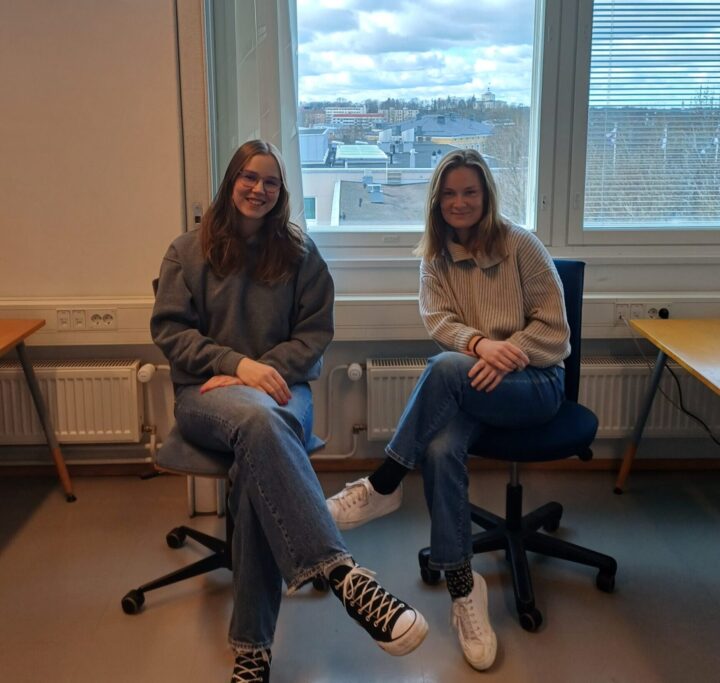Exploring the job of a research assistant: Skills, growth, and future insights
Anni Simola & Essi Heiskanen, Department of Geography and Geology, University of Turku
Working as a research assistant offers a valuable behind-the-scenes look at research work while improving many useful skills. We, Anni and Essi, are here to share our personal experiences – what it’s like to work as a research assistant, what we have learned so far, and how this role could shape our future career paths or academic development. Whether you are interested in working as a research assistant or just curious about the work in a research group, we hope that this post will give you a little glimpse into the research world.

Figure 1. Anni (left) and Essi (right).
Learning experiences and practical skills
Anni: I have previously worked as a research assistant in the GreenPlace project in 2022. In 2025, I started in a new position as a research assistant in the Transformative Cities project, although my work tasks are also related to other ongoing projects. After graduating recently, I continued working as a project researcher. My work tasks have mostly involved processing, analyzing, and visualizing Public Participation GIS (PPGIS) data. Additionally, I have become familiar with other research-related tasks, such as data collection (Figure 2), organizing events, and reporting research results. Working with PPGIS data has developed my skills in geospatial analysis as well as my problem-solving abilities with GIS. Improving such competence is beneficial, as I’m hoping to work with geospatial data in my future career. Currently, I’m working on a research paper based on my MSc thesis, which is exciting and has already improved my academic writing a lot. I have also learned more about the process of writing a paper and what publishing a scientific paper is like, which has given me a better view of the research world. I’m keeping my fingers crossed that everything goes well with publishing my first paper!
Essi: I’ve been working as a research assistant since November 2024. So far, I’ve had the chance to take part in two different research projects: the Multispecies Transitions of Cities and Regions (MUST) and the Urban Biodiversity Project (UBP). My primary tasks have been processing and analyzing large data sets in Excel. Cleaning and structuring data has improved my technical skills and made my work more efficient by making the workflow more straightforward. Additionally, I have learned a lot about conducting geospatial analyses, which has made me more confident in using different geospatial tools. Doing research pushes you to think critically, solve problems, and find varied solutions. Therefore, you can also see your own improvement along the way and appreciate the abilities that you have learned. In addition, I think the most rewarding part of this job is to witness the full research process from the beginning to the end. In our geography studies, we are introduced to a wide array of tools, but the practical side you only learn by doing. Thus, I feel like this job has significantly improved my academic competence – probably more than any course that I’ve taken so far.

Figure 2. PPGIS data collection in 2022 in the beautiful landscape of the Finnish Archipelago. Photo: Anni Simola.
International work environment
We both agree that working as a part of an international work environment is one of the greatest advantages of this job. Our research team consists of people from diverse cultural and disciplinary backgrounds, creating an inspiring and encouraging environment (Figure 3). Most of our meetings are held in English, which we feel enhances our confidence in international settings as well as our communication skills. This experience also prepares us for the future working world, where international collaboration is increasingly essential. Working in such a diverse research group has also allowed us to explore a variety of research topics all connected to the themes of PPGIS, nature, and sustainability, which has been fascinating and inspiring.

Figure 3. Group picture of the Sustainable Landscape Systems Research Group from a recent group seminar day.
Future opportunities and insights
Anni: My work experience in this research group has strengthened my interest in participatory mapping methods and topics of human-nature interactions, which has given me guidance for planning my future career. I find that the most rewarding part of my job is continuously learning in this field, which motivates me. I’m hoping to use and improve all the skills and knowledge I have gained in multiple ways in the working life. Additionally, versatility of work tasks has given me confidence to take on different kinds of tasks, even those that I’m not very familiar with. Sometimes new tasks can be overwhelming or time-consuming but accomplishing them has encouraged me to try new things and has grown my independence in the work environment.
Essi: Working as a research assistant provides a wide range of skills that create diverse opportunities for my future academic development. Thus, I feel like this job creates a strong foundation to build on, as analytical thinking and creative problem-solving are required in today’s working life.
Final thoughts
Overall, working as a research assistant has been an educational and exciting experience for both of us, and we also hope to inspire others to consider this job during their academic studies. The diverse set of skills we have acquired – from processing and analyzing data, field work, to improving creative problem-solving and communication – has provided us with great tools for our future careers. If you are considering applying for a research assistant job, we highly encourage it. It is also a great opportunity to dive deeper into certain research topics and possibly discover new interests along the way. We both have found topics that sparked our interest and continued exploring them through our MSc theses. Working as a research assistant is an experience that will not only improve your academic abilities but also your professional growth, sometimes even in unexpected ways.
